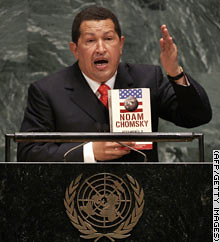If the world must end please start here!

There is a one in a million chance that on April 13, 2036 an asteroid may hit Earth. At least one big enough to do serious damage, smaller ones hit all the time.
First, a word to the asteroid, if one can speak to asteroids. Ours is a very big planet and if you must strike us may I at least direct your attention to potential targets. Look at these pictures carefully. If you must hit us and damage our planet these might not be a bad place to start. I provide several options since you may not know exactly what continent will be underneath you as you plummet to earth. So throughout this post you will find photos which you can use to pinpoint a landing spot.

Of course when there are remote possibilities of danger politicians go into first gear looking for new programs they can run, new conferences they can attend and ways to spend lots more of your money. And they particularly like problems that are not likely to be problems at all -- those are the easiest kind to solve. Real problems scare the hell out of them since they are particularly bad at dealing with those.

Now this article suggests that the threat, even a remote one, is a good thing because then politicians spend lots of money and if that “dramatically speeds up the development of the required technology, turning science fiction into science reality, we’ll be better off -- and who doesn’t want that?” Spoke like someone who knows zilch about economics and nothing about radical environmentalism.

The radicals don’t want us to all be better off. They have pushed quite hard an agenda geared to reduce humanity to more primitive levels of existence. And it is simply false to assume that spending money on this technology will necessarily makes us better off.

It’s an old fallacy but one used by politicians constantly. They spend a billion here or a trillion there and some technology comes out that. Now it usually goes a way to compensate for the money wasted but that is only half the story. And the article linked to here only tells half the story as well.

That billion or trillion was taken from the private sector which produces products, technologies, techniques, etc., which benefit people as well. And when you sap their R&D money through taxes you reduces technological advancement in other areas. There is no indication we end up better off since we have no idea what technologies were cut off because their funding was diverted.

And there is good reason to believe that there is a net lose in all of this. The private sector produces things people are willing to pay for, and that means they produce things people value. Government produces lots of things that people don’t want. One clear indication is that government knows it can’t sell many of it’s “services” so they don’t even try. They simply take the funding coercively. I use a Mac and Apple doesn’t have to tax me, or steal my money, in order to get me to purchase my computers. I do it voluntarily. I value the computer and don’t value George Bush. So Apple sells and Bush taxes.

Because government produces things people actually don’t want, or only want if they can force someone else to pay the costs, it is a pretty safe bet to say that the political black hole sucks in more value than it creates. And that makes us worse off not better off. Of course we will always be able to point to cronies or the privileged groups who have government largess sprinkled on them. Those people are easy to see, just as any new technology that is produced is easy to see. But to benefit the few the many were disadvantaged and they don’t get noticed. And to create the new technologies other technologies were stifled.

One final word to our asteroid. Please note that some of these individuals are in the advanced stages of senility and may not be around when you arrive. Please get in touch closer to the your arrival date for an updated list. I think there is one L in Hilary but I'll check. Thanks for your help.
Photos: From top to bottom. United Nations, King George, the United States Congress, Robert Mugabe, Pat Robertson, Hugo Chavez, Alexander Putin, Kim Jong-Il
 DiggIt!
DiggIt! Reddit
Reddit Del.icio.us
Del.icio.us

<< Home